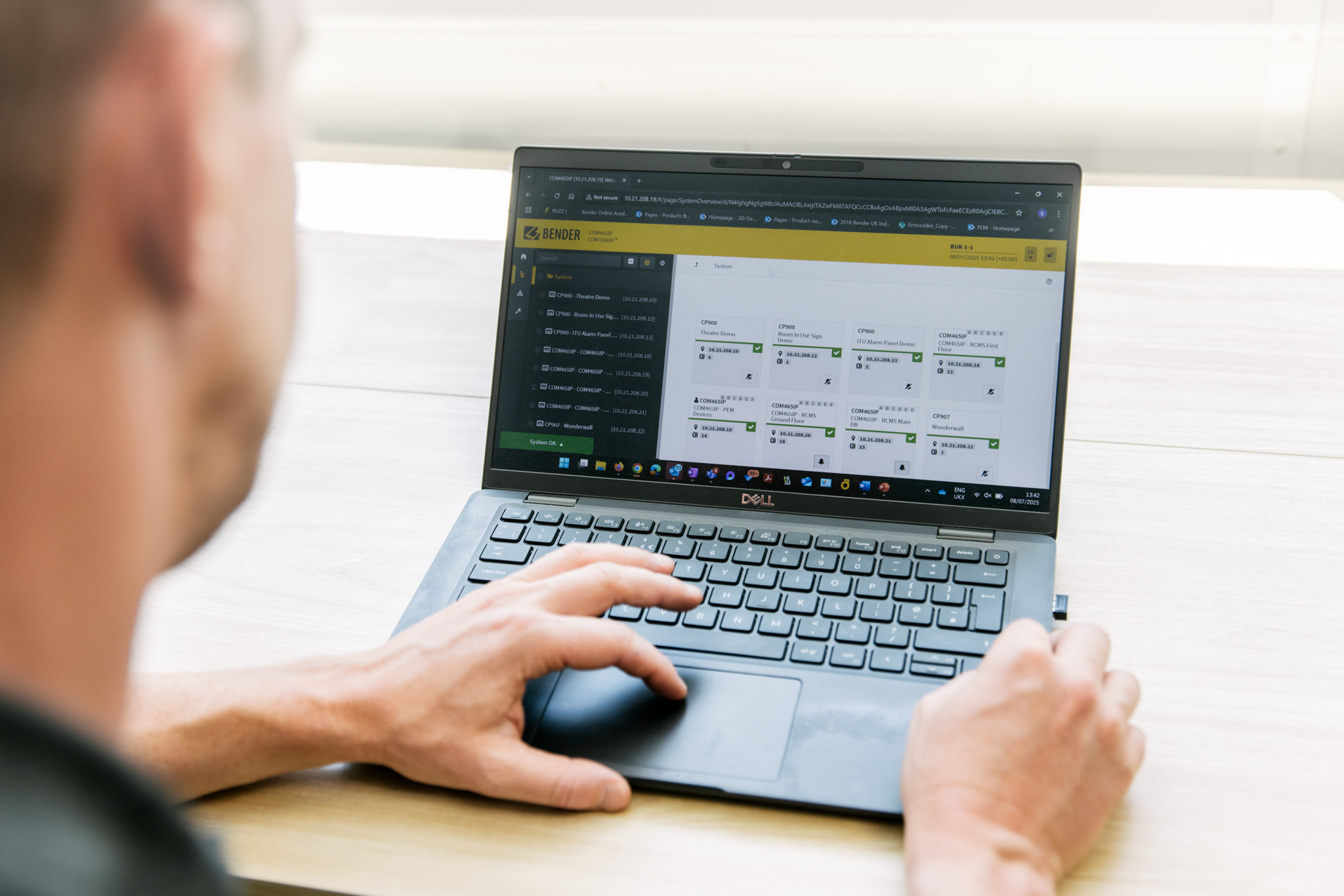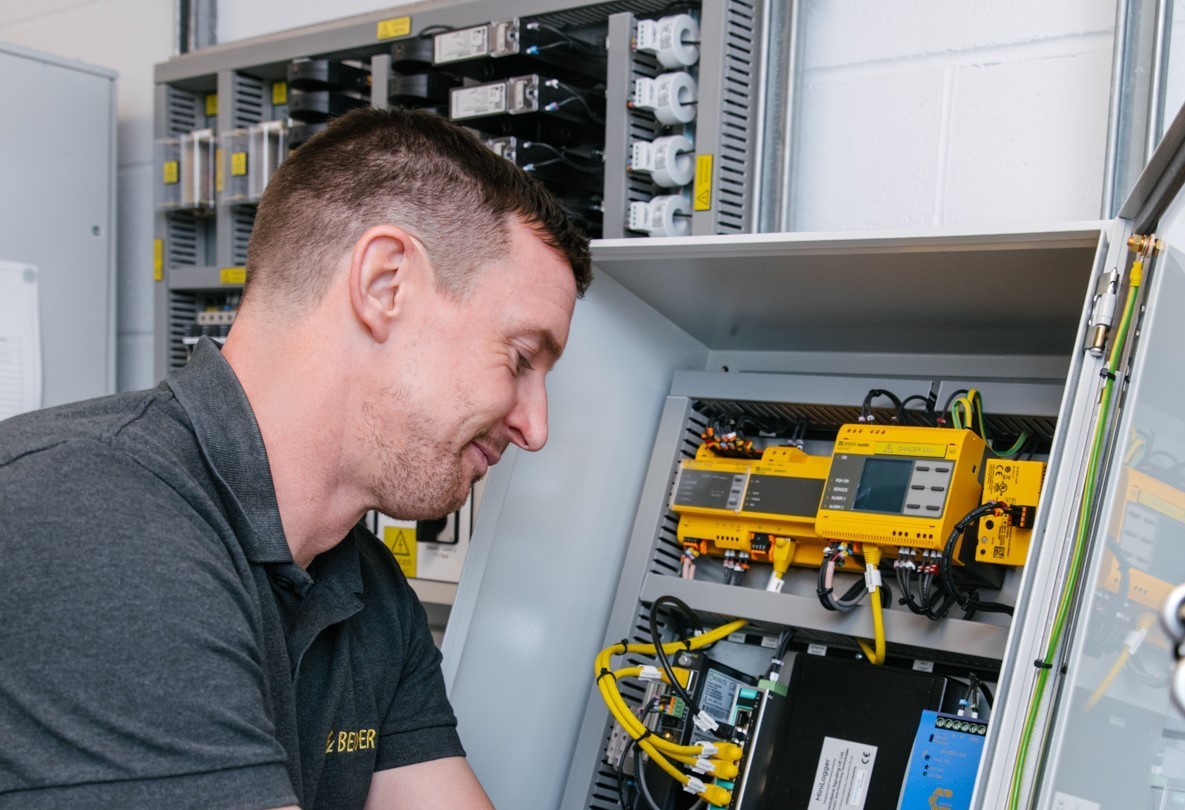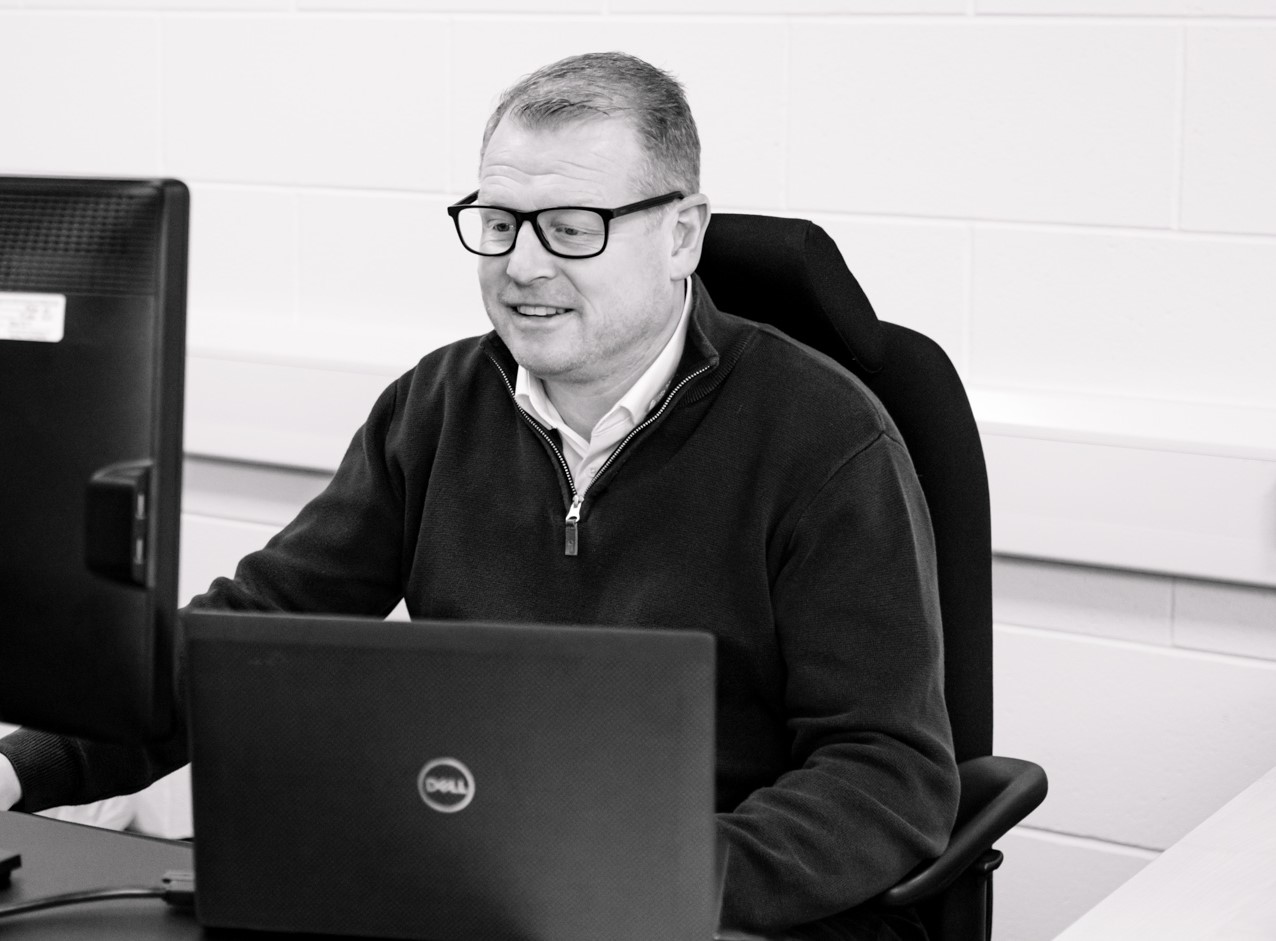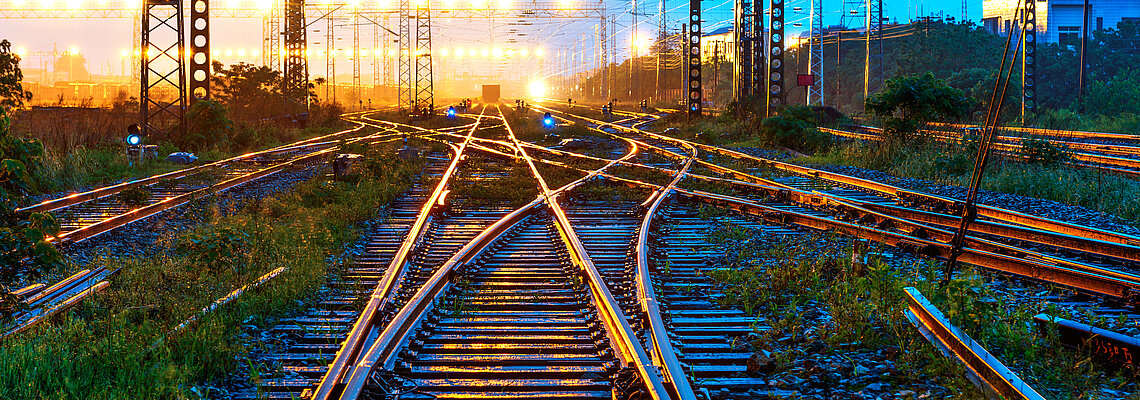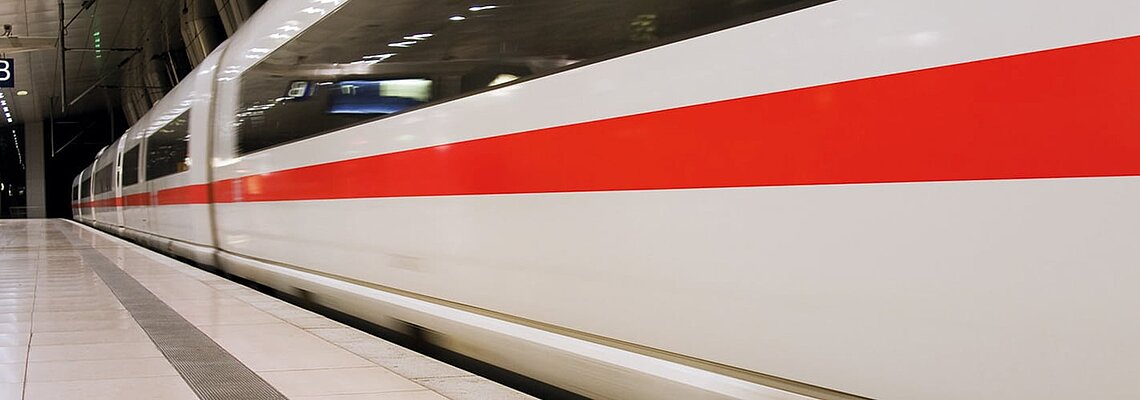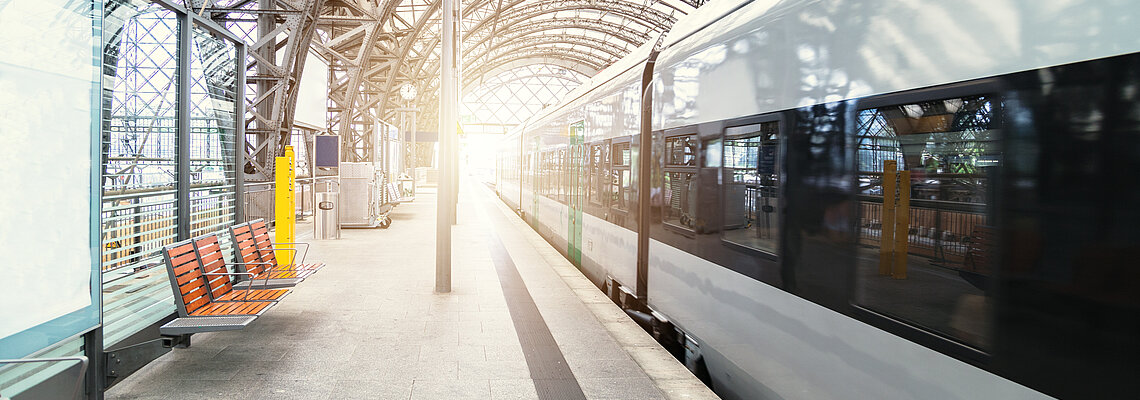
Signal power monitoring: Trusted on the rails, built to last
Signal power monitoring: Trusted on the rails, built to last
When signal power fails, everything grinds to a halt. In rail infrastructure, specification decisions determine whether systems prevent problems or create them which directly impacts safety, service reliability and the professional standing of decision-makers.
For those managing long term infrastructure lifecycles, monitoring system investments must deliver proven value while preventing costly reactive maintenance that impacts strained budgets and service quality.
The stakes are high. A single undetected earth fault can lead to service disruption, passenger delays and penalties reaching thousands of pounds per incident. Traditional reactive approaches such as waiting for faults to occur before responding no longer meets the sector's operational or financial demands.
This is why over 200 Bender RS4 systems monitor critical signal power systems across the UK rail network, building on the 1,300 previous generation systems already deployed – Bender estimates to protect up to 90% of the UK’s signal power monitoring market. From the Wessex route to East West Rail, from Transport for Wales to Network Rail's core infrastructure, it is an authority that has not been built on clever marketing promises - but earned through two decades of engineering heritage, precision and operational reliability that continues to address the underlying challenges that define success.
Pressure points across the network
The railway sector faces relentless operational demands. As the UK rail network marks its 200th anniversary in 2025, ageing assets are highlighted as an acute challenge for the industry with much of the UK's infrastructure dating back to the mid-18th century. This ageing infrastructure demands increasingly sophisticated monitoring to prevent cascading failures, which result in millions of pounds in delay compensation and operational disruption.
Network Rail's prohibition of red zone working means every trackside intervention requires costly possession windows, often pushing maintenance into expensive night shifts. Delay minute penalties can be costly, while safety protocols demand that "boots on ballast" become the exception, not the rule.
Infrastructure owners need systems that provide advanced warning of potential faults arising, reducing disruption and allowing informed decisions to keep routes operational, rather than simply detecting them. These tools must provide remote visibility without requiring engineers to stand trackside with handheld test equipment. The traditional reactive maintenance approach and scheduled cable testing are no longer an option.
Strategic monitoring approach
Bender's RS4 solution addresses these pressures through three distinct monitoring levels, each engineered for specific contexts. The entry-level solution has served as the industry benchmark for fifteen years, delivering fundamental monitoring capabilities that has transformed rail diagnostics from reactive to predictive.
The enhanced monitoring tier has now emerged as the de-facto national standard, offering superior system visibility and diagnostic precision for a reasonable cost increase. Network Rail's commitment to upgrading hundreds of systems to this enhanced technology across most routes reflects the optimal balance of capability and value.
The most advanced installations target high-traffic corridors where delay minute penalties justify premium investment. These systems provide the most granular monitoring available including:
Separate monitoring of switchgear and cables.
Unmatched diagnostic precision.
Real-time fault assessment capabilities.
More than 1,500 RS solutions operate across the UK, spanning entry-level through to the most advanced monitoring installations. This deployment reflects the sector's strategic approach to monitoring investment.
Precision in practice
RS4 moves away from standard monitoring into precise fault location - a capability that sets it apart in the market. Core-to-earth faults represent most signal power failures, and the system remains the only solution on the market capable of accurately pinpointing these faults with a combination of fixed and handheld solutions.
Success stories have emerged from York, Nottingham and St Pancras, where systems have proactively detected developing faults and prevented service disruptions. RS4 monitors continuously without disrupting railway operations. Teams install systems without requiring power disconnection, meaning diagnostic capability improves without risk.
Remote reconfiguration capabilities further reduce trackside interventions. Power system adjustments that previously required possession windows and on-site engineering can now be managed from control centres, streamlining operations while maintaining safety protocols.
Lifecycle mathematics
The financial case for advanced monitoring extends well beyond initial procurement costs. A client’s RS4 business case demonstrates this clearly – an investment of just over £1million would achieve a £4.8 million return, achieving calculated payback within five years while providing a twenty-year service lifespan. Multiple sources drive these returns - reduced possession costs, delay penalties avoided, predictive maintenance scheduling and emergency responses eliminated.
Our transparent pricing model removes the uncertainty and overhead that plagues many technology investments. Hardware costs, cloud services and ongoing support are declared upfront, with no hidden licensing fees or unexpected charges emerging over the system's lifecycle. This clarity enables accurate lifecycle costing and confident capital planning.
Engineering transparency
For engineers specifying critical rail infrastructure, system transparency and technical openness matter as much as performance specifications. Our team at Bender provides complete documentation, open system architecture and direct access to the principles underlying RS4 operation.
This is not a black-box-approach where proprietary algorithms remain hidden behind marketing claims. Engineers can understand exactly how the system functions, how it reaches its diagnostic conclusions and how it integrates with existing infrastructure. The methodology is proven through two decades of field operation, not theoretical modelling.
Technical support comes directly from the engineering team responsible for system development, ensuring that queries receive authoritative responses rather than scripted support desk interactions. This direct technical communication builds the professional confidence essential when specifying safety-critical systems.
Partnership continuity
Over 1,500 Bender systems now operate across rail networks, with many installations approaching or exceeding their second decade of service. This operational longevity reflects both robust engineering and ongoing manufacturer support - systems don't become orphaned when newer technologies emerge.
The RS4 evolution continues through regular updates and capability enhancements, meaning today's investment remains relevant throughout its operational life. Many of our rail customers maintain active service contracts precisely because Bender delivers sustained support rather than install-and-abandon relationships.
This continuity matters especially for infrastructure assets with twenty-year-plus operational lives. Partners need confidence that today's monitoring investment will receive support, updates and technical assistance throughout its service period, not just during the initial warranty phase.
Sustainable infrastructure and expanded monitoring
Rail infrastructure investments must deliver decades of reliable service while adapting to evolving operational demands. RS4's modular architecture and remote update capabilities ensure systems remain current without requiring replacement hardware.
This approach aligns with broader sustainability objectives, extending asset life through intelligent monitoring rather than frequent replacement cycles. Predictive maintenance scheduling reduces unnecessary interventions while targeted repairs prevent those smaller issues escalating into major failures.
RS4's modular architecture extends beyond signal power monitoring to cover a comprehensive range of infrastructure components. The system's unique structure enables monitoring of multifunction meters, temperature and humidity sensors, UPS systems, and other critical infrastructure elements. This expanded monitoring capability provides infrastructure owners with a unified view of their critical systems, reducing the need for multiple monitoring platforms while enhancing both overall network visibility and maintenance planning.
The platform's energy efficiency and compact footprint minimise operational environmental impact while its remote capabilities reduce the carbon footprint associated with maintenance travel and trackside working.
In a sector where certainty matters, Bender has been the trusted partner for decades - and remains the reliable choice for a smarter, safer, more sustainable rail future.
By Gareth Brunton, Managing Director at Bender UK


